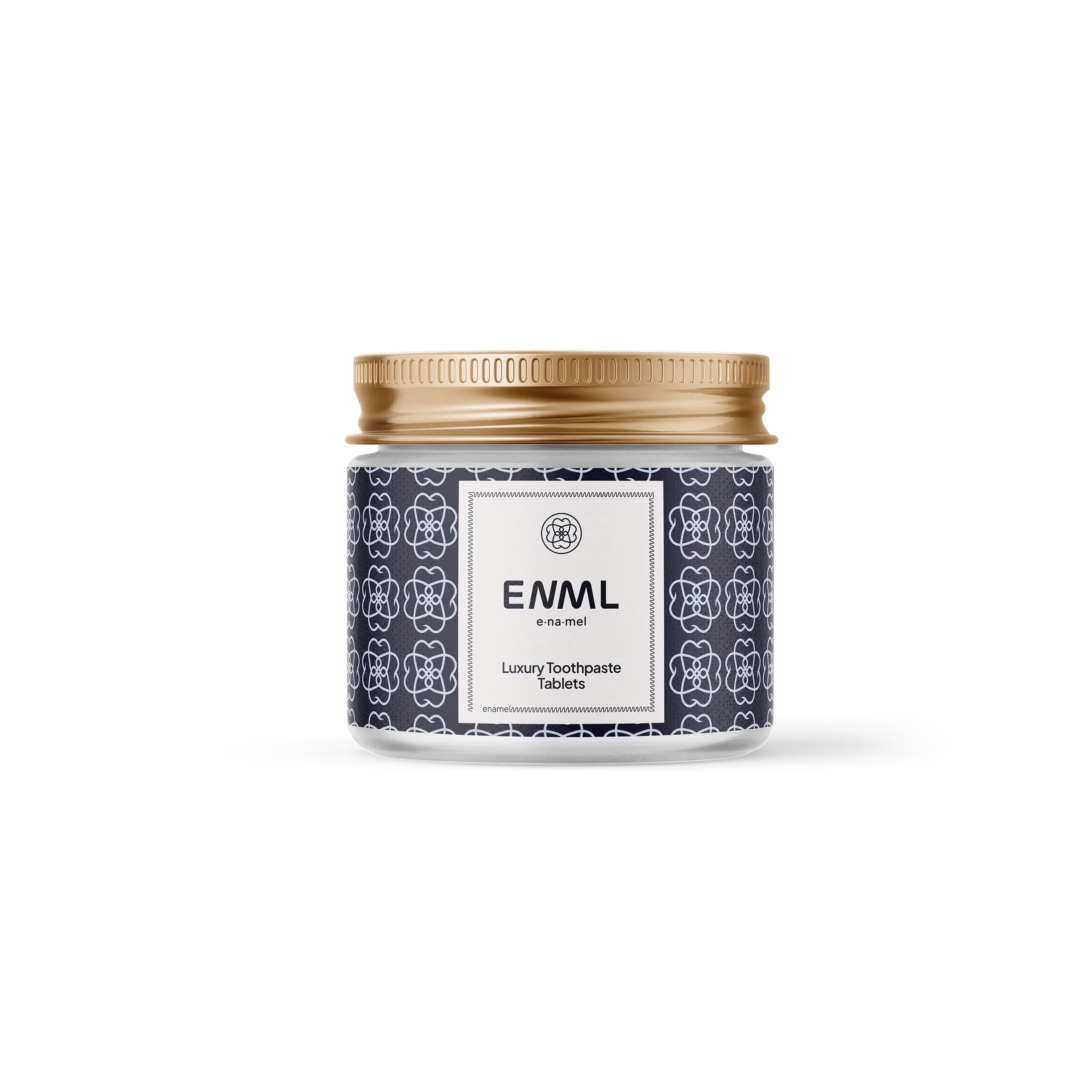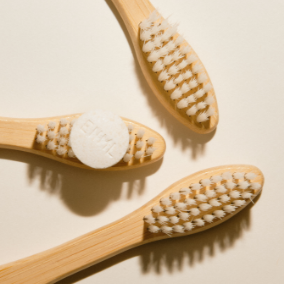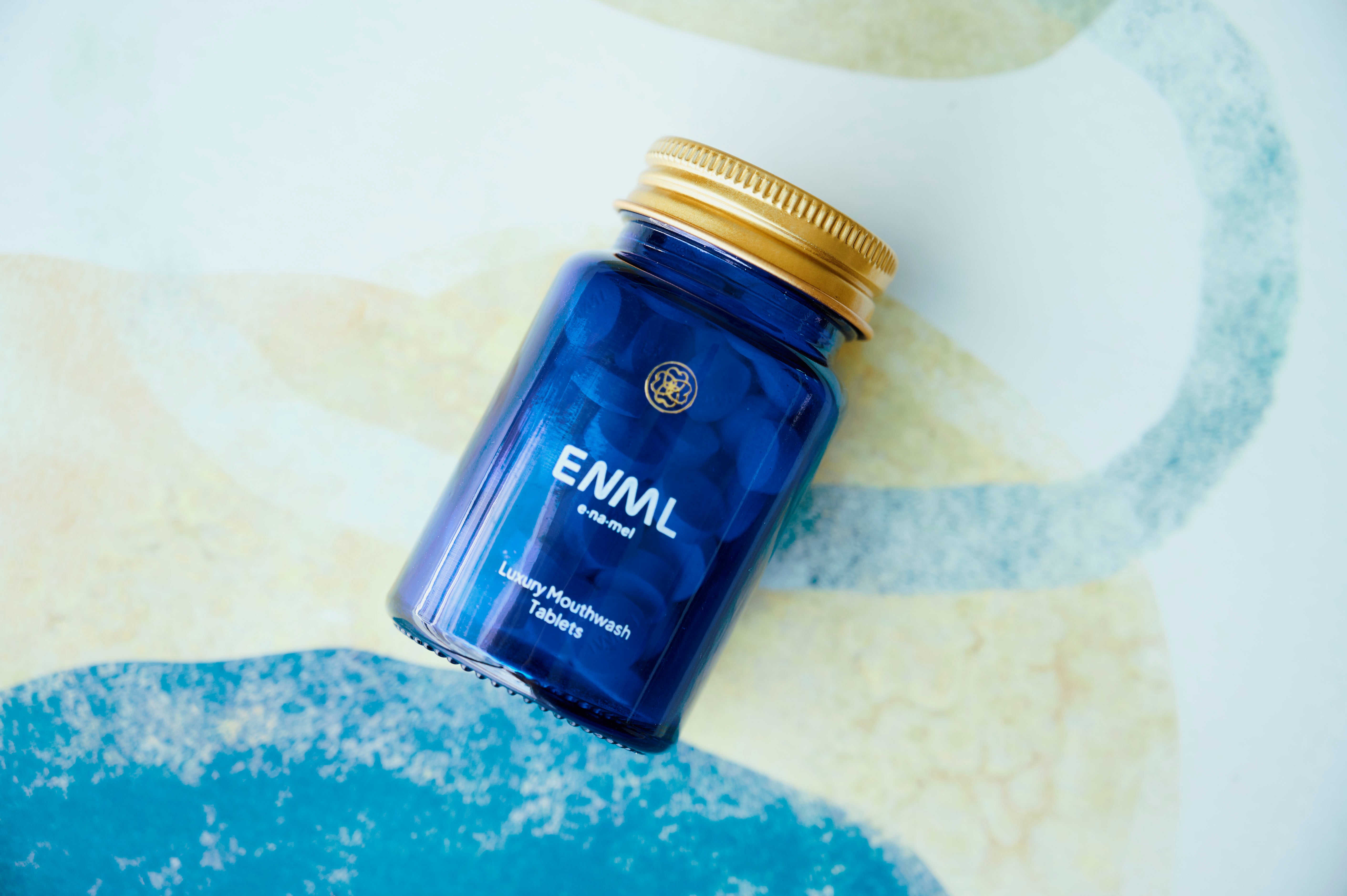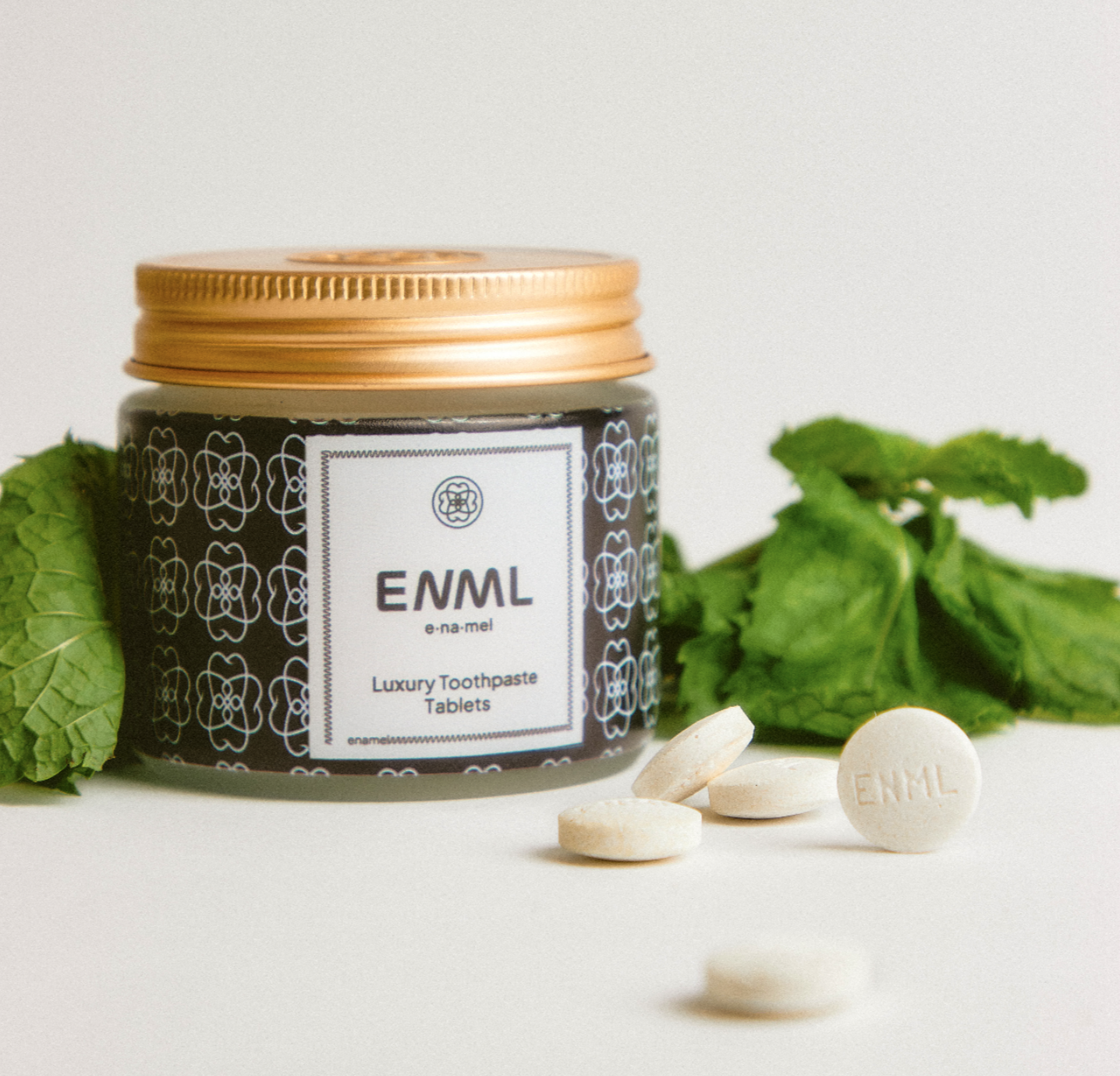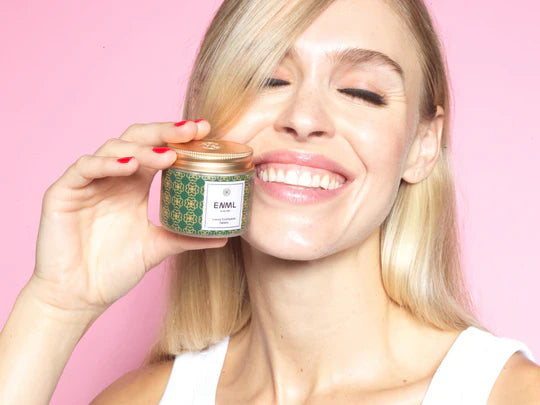Can teeth heal themselves? The answer isn’t as straightforward as it seems. While enamel cannot regenerate once lost, innovative solutions like microhydroxyapatite can help remineralize and strengthen weakened enamel, effectively slowing decay and reducing sensitivity. In this post, we explore the science behind remineralization and why it’s a game-changer for oral health, especially for those prone to enamel damage.
What is remineralization, and how does microhydroxyapatite support it?
Dr. Jordan Harper dives into how remineralization works, why enamel can’t regenerate, and how microhydroxyapatite fills the gap by binding to weakened areas of enamel and dentin.
💡 Related Post: The Future of Tooth Protection: Why Microhydroxyapatite Is the New Fluoride
Key Questions and Answers
-
Can teeth heal themselves?
No, enamel cannot regenerate once it’s lost. However, remineralization can slow or stop decay, effectively “scarring” the damaged area and reducing future risks. -
What is remineralization?
Remineralization is the process of restoring minerals to weakened enamel and dentin. Microhydroxyapatite facilitates this by binding to damaged areas and reinforcing the tooth’s natural structure. -
How does microhydroxyapatite help with remineralization?
This bioactive mineral binds to exposed hydroxyapatite in enamel, filling in nicks, scratches, and microscopic damage. It also occludes dentin tubules, reducing sensitivity and protecting teeth. -
What causes demineralization?
Demineralization occurs due to acid erosion, aggressive brushing, bacterial biofilm, and mechanical stress. Factors like acidic diets and improper oral care can accelerate this process. -
Why is microhydroxyapatite better than traditional fluoride?
Unlike fluoride, which acts as a temporary protective coating, microhydroxyapatite bonds with teeth, strengthening them at a molecular level for long-lasting benefits. -
How does pregnancy affect enamel health?
Hormonal changes, acid reflux, and nausea during pregnancy can exacerbate enamel erosion. Using microhydroxyapatite-based toothpaste provides safe, effective protection during this vulnerable time.
Conclusion
While teeth can’t regenerate enamel once it’s lost, remineralization offers a powerful way to protect and strengthen them. Using products like ENML Toothpaste Tablets ensures safe, effective protection against enamel erosion and sensitivity.
Whether you’re navigating pregnancy, combating acid erosion, or simply looking to improve your oral care, these innovative solutions provide long-lasting benefits. Take the first step toward healthier teeth today—explore the ENML collection at enml.com.
Transcript
People get brackets attached to their teeth. Um, you end up with little like white areas, demineralized areas of enamel around where the brackets were. If the kid's not brushing right, cause food gets trapped and the other chemical compounds that are in those toothpaste are basically for lack of a better words, like clay, right?
It's clay. Um, the bacteria is not eating your tooth. The bacteria is eating the food that's in a plaque biofilm. Then the secretions, the byproduct of the bacteria nibbling on that, the body's going through a lot of hormonal changes, and sometimes those hormones can generate different types of issues in the oral cavity.
Welcome to Minty Fresh Takes presented by Enamel. The podcast where we explore the latest trends, science, and personal stories behind oral wellness. I'm your host, Xander, and today we have a jam packed show covering some of the most important topics in oral care. From celebrities to experts in the field, you're sure to hear dentistry content done in a fun way.
So sit back, grab your popcorn and your floss because you'll need it after and enjoy this conversation. Thanks for listening Welcome to episode four of minty fresh takes. We're so glad you guys are here with us. We have dr Jordan harper on set in studio today. Thank you for being here with us. Absolutely We're ripping right into the very first question of the show right off the bat Your teeth can heal themselves under the right condition true or false.
I'm going to say false But so if you're in dental school, right, this is one of those tricky true false questions. The answer, the true answer is false, but there is some caveats, right? So your teeth can heal themselves. The true answer is no, they cannot. Uh, you have one set of enamel and you have one set of Denton.
And when all that's gone, it's gone. You can't add it back. Right. Um, and putting emphasis on, you can't add like layers of thick enamel back. Right. That's not possible. However, Is there ways to either slow disease or stop disease after it's started? The answer to that is yes. So the tooth's not maybe healed, maybe it just has a scar on it.
Um, an example I'll commonly give is braces scarring. So people get brackets attached to their teeth. You end up with little like white areas, demineralized areas of enamel around where the brackets were. If the kid's not brushing right, cause food gets trapped in the bacteria, blah, blah, blah. So one thing that will happen is, is you'll get those little white demineralized areas.
You can with good hygiene and in good oral care products good toothpaste You can slow slash stop that and keep it arrested for a very long time. Maybe forever, right? It is more susceptible to getting a cavity in the future, but you can stop it and and slow the progression It's just all about you know, how you're taking care of it at home Um, what your, what your diet looks like and making sure that the bacteria don't continue to sit on those already weakened enamel spots.
So you mentioned that you get one set of teeth. For the rest of your life, the enamel that you have on your teeth is the enamel you'll have until you die, unless you wear it out. Yep. Talk to me about the process of what it looks like for the remineralization of the teeth. So, remineralizing the teeth is, is an interesting concept.
So, basically what happens is, when you, when you have enamel on the outside of a tooth, right, it's like super, super rigid. Uh, not very porous at all. Uh, that's the hard armor on the outside of the tooth, right? Acidic diet, uh, cavities, blah, blah, blah, causes problems inside the teeth. The remineralization effect really takes place, uh, at the, at the surface level of the dentin.
Um, As well as nicks and scrapes in the hydroxyapatite of the enamel, right? Those are kind of the two, two places, right? So if you visualize like on a, on a, on a micro scales and I'm going to try and like hand puppet it, so it's more macro. Um, so let's say you have a surface abrasion on enamel, like the braces scarring, right?
The way the remodelization works with, with microhydroxyapatite, like what's an enamel is. Um, the molecules are small enough where they can actually come in, uh, and, and rebind themselves to that hydroxyapatite that is exposed on that enamel, right? So you have a little brachial scarring, microhydroxyapatite, constantly hitting that, hitting that, hitting that.
The molecule is actually small enough where it will remineralize parts of that tooth. It's not going to build a layer of enamel back out, right? Um, but it's going to remineralize it to help protect it. With the Denton, uh, Denton, if you look at an electron microscope on a cross section, Denton is actually Um, made up of, of billions of these little tubules.
Okay. So Denton's very porous. Um, and for a lot of people, that's what leads to sensitivity, right? Those little, those little tubes. Have fluid filled in them and the movement of that fluid is what generates sensitivity around the pulp. Okay. Cause there's millions of little microscopic scopic tubules have a direct connection to the pulp tissue.
And so what ends up happening is, is with, with those tubes, that micro hydroxy appetite, you get enough of those of those tubes begin to be occluded. Okay. As the micro hydroxy appetite begins to bind into those tubes and seal them off. And that's how the decrease in sensitivity works, right? As you keep.
Brushing with the product, brush with the product, brush with the product, the sensitivity goes down, um, because you're actually re mineralizing those little tubes, and basically putting a little, think of it as like a seal or a plug, right, over the tube, and so when the fluid doesn't move, um, the sensitivity doesn't happen.
For sure. That's kind of how it works. And that's something that I've experienced, for me personally, on this journey with switching over to the toothpaste tabs, obviously by Enamel. With using those, they've been able to go back in and, you know, Take these teeth that I have that were sensitive. I think I had like two main ones that you've seen that you'll see today.
Yup. Um, that, you know, now I'm not experiencing as much sensitivity as I once did, even with sensitive using the fluoride base versus now using the micro hydroxy appetite. Yeah. The problem with things like Sensodyne, um, and other. quote unquote, you know, uh, there's a, there's a myriad of options out there that are the anti sensitivity toothpaste, right?
The problem is, is the, the other chemical compounds that are in those toothpaste are basically for lack of a better words, like clay, right? It's clay. Um, there, you know, you brush with it enough, it mushes some little clay compounds in those tubes. And the problem is all that stuff washes out. It's not remineralizing anything, right?
Um, it's literally just, right. mashing some clay in, into the, into the porosities. Um, and eventually that's all going to wash away, you know, so, so the actual remineralization effects, not, not a thing. Now you mentioned earlier about the demineralization of the teeth. What, what goes into that? What, what could cause that?
So, so, um, Demonetizing teeth comes from a variety of ways. Um, one, so we'll talk about a few different ways. One's abrasion, uh, abrasions, like the mechanics, right? So let's say you've got a hard bristled toothbrush and you're just super strong, aggressive brush and just getting after it. Right. Um, That is going to abrade the teeth, right?
Um, you want to be using a very soft bristle toothbrush. Gentle circular motions, that's the proper technique for brushing your teeth. And so, so that's one of the ways, um, that the teeth can demineralize. One of the other common ways is acid erosion, right? Um, acid erosion, so any of the acidic foods that we drink, fruits, that type of thing, citrus that's in our diet can cause some acid erosion of the enamel.
But another way of acid erosion is actually what cavities are. So most people don't realize everyone knows associates bacteria with cavities. What actually happens, the bacteria is not eating your tooth. The bacteria is eating the food that's in a plaque biofilm. Then the secretions, the by product of the bacteria nibbling on that food is acid.
Wow. And that's how it eats a hole inside your tooth. And most people don't know that. Um, so you get like a little hole in the tooth and that becomes a cavity and then you gotta come see me to come fix it. Okay. Um, and so that's it. That's another example of, of a way demineralization happens. Yeah. Um. And then, uh, and then lastly, another way demineralization happens would be, um, the, the mechanical physics of the amount of force the teeth endure, right?
So, um, enamel, we call it enamel rods because that's what it looks like under electron microscope. And as teeth get force applied to them and flex, um, the, the way a tooth comes out of the gums, if it flexes where it comes out of the gums and the bone. Um, it flexes right at the neck of it, right under load.
Um, and then what will happen is some of those enamel rods over time, enamel is not great at flexing, right? And so that flexural eventually over time causes enamel rods to pop and break. And you'll end up with little, uh, attrition areas at the gum line. Holy cow. So I never knew that about cavities. In that aspect.
That is, that is, uh, It's not the bacteria. The bacteria is the problem. Yep. But it's the byproduct of the bacteria. It's not like the bacteria is in there eating. Now let me ask you this. We've, uh, You know, specifically for women who are pregnant. Are there other risks that they might not know about that they're going through from a demineralization process that could be disadvantage, obviously, to their teeth?
Yeah. So, so with the pregnant, with the, with the pregnant population, right. Yeah. Um, they get, there's a few different things that, that, uh, kind of affect the oral cavity from a demonization standpoint. The big thing is, you know, everyone hears about, um, that first trimester nausea and unfortunately for some women, it lasts longer than that.
So sorry. Um, you know, you guys are troopers for putting up with that, but that's what makes moms amazing, you know? Um, but yeah, so like that first trimester nausea, right. You get acid reflux. Um, you, you unfortunately get the vomiting that has very, very low pH, which is the stomach acid that's being regurgitated up.
Um, and that stomach acid is going to do serious harm to the teeth. Um, one thing you don't want to do when that happens is do not immediately go and brush your teeth. Okay. Because you have something that's a pH less than one, which is super acidic in your mouth. Do not go brush your teeth because you are literally just going to be bathing your teeth in acid.
And then you're going to add the mechanics of a toothbrush to the mix. Not a good idea, right? So you want to get something to bring the pH of your mouth up as much as possible. What I recommend most of the time, um, cause, cause most people after they get nauseous, don't want to go grab some milk, right?
It's basic. I just recommend, hey, go, go rinse your mouth out, right? Get as much of that acid out of there as humanly possible. You know, drink some water and start sipping on some water for the next 20 to 30 minutes until that pH comes back up, gets more neutral, then you can go about brushing your teeth.
You just don't want to, I know it's kind of gross, but, you know, You really don't want to brush your teeth immediately after a ride at, um, then, then the other thing too, with pregnant women, um, and it not necessarily so much with demon realization, it can lead to demon realization down the line is the body's going through a lot of hormonal changes.
Um, and sometimes there's hormones, uh, can, can generate different types of issues in our cavity involving the gum tissue. You get something called pregnancy gingivitis. So it's just very inflamed, irritated, bleedy gums. Um, and the problem with that becomes That becomes more, if the gums are really puffy and irritated, um, there's more areas for plaque to get trapped, right?
And then the bacteria follow. And it's just a vicious circle, which can eventually do more cavities and all that type of thing. So we see that a lot too. Um, the big thing with, with, with. The the pregnancy gingivitis is a lot of people get really nervous when they start brushing their teeth or floss their teeth their gums bleed, right?
It's not a good sign But it doesn't mean stop doing it, right? It actually means keep doing it doing it more, right? We want you brushing and flossing more because we want that gum tissue stimulated We want that gingiva cleaned as much as possible because it's not The gingivitis is not being caused by plaque and food being trapped there.
It's being caused by hormones inside the body. Right. Um, and so we're just trying to help keep the tooth as clean as possible. And as all that inflammation occurs, it gets harder to keep the teeth clean because the biofilms get trapped up underneath the inflamed gums. Um, But it's just one of those things like, hey, just because they're bleeding a little bit, it doesn't mean stop brushing and flossing, right?
Brush more actually is the answer to that question. Now with y'all's new product, uh, enamel's toothpaste tabs, you guys have designed this in a way that is super beneficial for the user to not only You know, a lot of, a lot of to pay systems are, are, you know, place the band aid over top and not actually get to the root cause the root problem and fix it.
That's what enamel comes out to do, you know, in, in talking about strengthening the actual enamel, the name of the company, but also what you have on your teeth. Can you kind of walk me through that process of what that looks like in the benefits of that? Not just for pregnant women, but also for anybody who's going to use the product.
Yeah, sure. So, so the big thing is, is an understanding of how fluoride works and, and fluoride has been a toothpaste forever, right? Fluoride just is, uh, is an, is like a, is an armor all right? Like you would put on plastics in your car, um, or, uh, or maybe a wax coating, you know, on, on the surface of your car, uh, paint.
Um, that's all fluoride is. Okay. So fluoride just. Binds, uh, with the addition of other compounds to the hydroxyapatite to create something called fluoro hydroxyapatite. And it's a protectant. That's it. Um, with Mike, with micro hydroxyapatite, like what's an enamel, you get actual bonding of the hydroxyapatite to the tooth, right?
So like materials, like, like materials, right? You already have hydroxyapatite present. Um, the micro hydroxyapatite, uh, that's in the toothpaste is actually aiding in the remineralization process. So it's not. It's not just a coat of armor that's going to wear off. And that's where the significant benefit is in regards to the pregnant woman.
This is where it's huge, right? Is when, when ladies get pregnant, I've watched my wife go through this. It's like the first time in your life, you're in, you're usually your twenties, early thirties. And you go instantly start evaluating every single thing you're putting in your body, right? And one of the big things that gets red flagged is fluoride, right?
Um, because there's fluorosis and there's all these, you know, sort of detrimental effects that can happen to the fetus. Uh, you know, if too much fluoride is ingested. And so, um, What's amazing about enamel is, you know, the main ingredients, micro hydroxyapatite. Yeah. I'm not recommending you to swallow a gallon of it, but you could, and it's not going to cause any harm.
Right. It is a naturally occurring mineral, just like calcium, just like phosphate, you know, it's all naturally occurring. Um, So you can brush your teeth without worry. You can swallow a little bit of accidentally. It's not going to harm you. Yeah. No, um, it is completely safe. Um, and, and moms can rest easy at night knowing they're doing the best job they can possibly do to raise that child and bring that child in this world.
Yeah. Cause there's no, no risk, no risk of ingesting it. Yeah. Hey guys, thanks so much for tuning into another episode of minty fresh takes presented by enamel. Listen, we all know people that are into the latest trends for their oral care. We also know people on the other side of the spectrum that are not.
This show is made for both of those people. And so if you could do us the absolute biggest favor and share this, like, comment, subscribe, make, make, make sure to share this with your friends on both sides of the spectrum and somebody right in the middle. That would be awesome. Our biggest mission here, not only doing this podcast, but with all the products and the dentistry here in NYSL is to ensure the trust and the quality of product that we continually offer to our patients.
Our mission through this show and through our brand new product enamel is to ensure that your teeth are being covered by nutrients that actually benefit your teeth. I micro hydroxy appetite, our toothpaste tablets that we have right here. Toothpaste tablets and the luxury mouthwash tablets. These are both available at enamel.com.
That is E N M L. com. And if you're looking for more information on micro hydroxy appetite, feel free to check out our latest YouTube videos. Like we said earlier, make sure to subscribe to this channel. You don't want to miss anything that we have coming out and thanks so much for watching. We'll see you on the next show.


